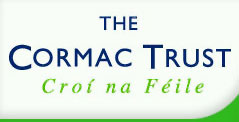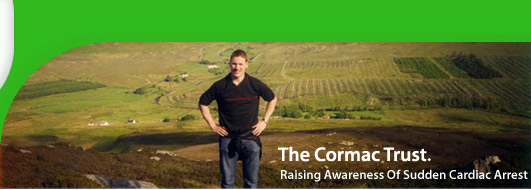American teenager saved by defibrillator – twice
The fact that Allison Parker is living, breathing and walking the campus of Ithaca College is no less than miraculous.
Twice this 18-year-old from Penfield has been hit by the lightning bolt of misfortune. Twice her heart has stopped beating, and twice someone with medical training has been there to bring her back from the grip of death.
Parker, a freshman, has been told countless times by doctors, friends, relatives and perfect strangers just how lucky she is to be alive.
But for the teenager, thinking about the thin wire she has walked between life and death is not easy.
“It’s hard to comprehend all of it,” Parker said. “You think ‘Oh my gosh.’ But if I think about it, I think I really am lucky.”
Heart-stopping story
Donna and Joe Parker dropped their daughter off at Ithaca College on Aug. 27 with trepidation. Like other parents, there was the natural concern about sending their child off to college for the first time. But the couple had more of a burden that day than many of the other parents.
Just seven days before, Allison had been lying in a hospital bed after her heart stopped while she was exercising at a local athletic club. It was only the quick thinking of a doctor working out at the club and the presence of an automatic external defibrillator in the building that saved her life.
“Everyone who came into the room looked at Allison and said, ‘You don’t know how lucky you are,'” said Donna Parker. “We are just blessed. Totally.”
Allison goes to the gym about three times a week. She was on the Penfield High School alpine skiing team for four years and also liked to play recreational softball. On Aug. 20, she was at the Mid-Town Athletic Club, working out on a cross-training machine, when she began to feel lightheaded.
“Within the first 10 minutes of working out, I stopped to catch my breath and I couldn’t,” Allison said. “I just stepped off the machine and leaned against the side and got these little black dots in my vision, so I just closed my eyes. When I opened them again, everything was black.”
The next thing she remembers is waking up and being surrounded by people. She does not know how long she was out.
Dr. Frank Zwemer was in another room at the club, about 45 minutes into a spinning class. The music was loud, and Zwemer and his classmates were pedaling hard on their stationary bicycles.
He said he saw some commotion in the workout room but did not know what was happening until his wife, Laura Brewer, came into the spinning class and told him club officials were calling over the public address system for a doctor.
“I basically found this woman at the foot of an exercise machine, kind of in a pile with all these people around her,” he said. “She looked basically dead or near dead.”
Having Zwemer in the building was a stroke of luck for Allison. Not only is he an emergency room physician, but he is the clinical director of the Emergency Department at Strong Memorial Hospital.
When he got to Allison, she was taking the kind of gasps that people take just before they die, he said. She had stopped breathing and had no pulse.
“I was feeling for a pulse. I was asking for help finding a pulse, and no one could find a pulse,” Zwemer said.
He said he told somebody to call 911 and he and another bystander started CPR. After several minutes, Allison still had no pulse. Zwemer said someone brought him the club’s emergency defibrillator kit.
“Once we hooked her up to it and turned it on, it signaled for a shock and we shocked her,” he said. “With that one shock, she had a pulse.”
The first lucky strike
Allison survived a similar incident two years ago while hiking in the Adirondack Mountains with a group of summer campers. Miles away from emergency medical care, her life was saved by a nurse who was with the group.
“I was on a hike, and again within the first 10 minutes of hiking, I leaned up against a tree — this is what I’ve been told because I don’t remember any of this — and then just fell,” she said. “Luckily, there just happened to be a nurse on the hike, and she gave me CPR for about 20 minutes until an ambulance got there.”
Allison was unconscious for two days and spent nine days in the hospital. Doctors, however, could not determine why her heart simply stopped beating.
“We walked away scratching our heads, not knowing what it was, a mineral deficiency or something else,” said Allison’s mother. “It was very unsettling.”
Off to school
The good thing to come from the recent attack was that it allowed doctors to finally pinpoint the cause. After Allison was revived at the health club, she was taken to Strong, where doctors determined after a battery of tests that her heart stopped because of a condition called hypertrophic cardiomyopathy. The disease is inherited and causes a thickening of the heart muscle.
Donna Parker also has hypertrophic cardiomyopathy, but she has never experienced attacks as severe as her daughter’s.
Allison left the hospital with a small automatic defibrillator implanted in her chest. It is not a cure, but the device is set to deliver a shock if the heart goes into cardiac arrest.
“They said it will feel like somebody punched me in the chest,” said Allison. “They said if I pass out, I will wake up.”
The device is making it possible for Allison to go to school this fall. Her parents were apprehensive about letting her go, but her determination and doctors’ approvals changed their minds.
“She kept saying, ‘I want to go to school, I want to go to school,'” her mother said. “(The doctors) were the first ones to say she could do that, and it was like her spirits just rebounded. I guess it’s her determination.”
Giving thanks
The college student says she is excited about being at school and the classes she is taking. She even walked the treadmill at the school gym last week.
Allison said she thinks about what she has been through and the doctor who saved her life. She said she remembers when he came to visit her in the hospital.
“You could tell he had tears in his eyes,” said Allison. “My mom had to help me talk to him because of the shock of him being there and saving my life. All I could do was like thank him a million times.”
For Zwemer, it was an emotional experience as well. He credits his experience and training. He also is thankful the club had an emergency defibrillator.
“I was on a high for a few days, and particularly because it was a young person’s life,” he said. “What really saved her life was shocking her with the AED, but I think what I was able to offer was just recognizing that this was not just a simple seizure.”
Donna Parker said she just wrote a letter to Zwemer.
“But how do you say thank you? It sounds so trivial compared to what happened,” she said. “I finally got a thank-you note out to him, and it just said, ‘I can’t believe you were a blessing to her on that day.'”
Jeffrey Blackwell
(Drochester Democrat and Chronicle, September 5, 2006)


